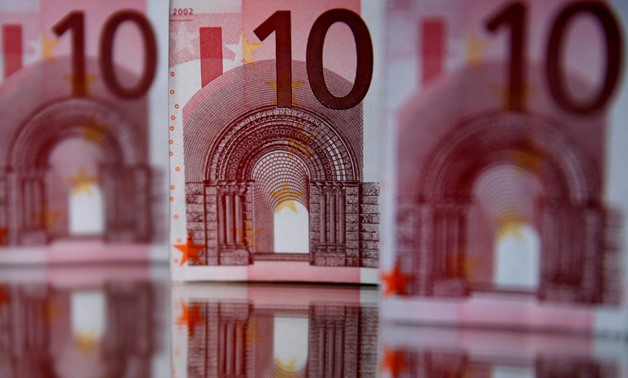
FILE PHOTO: A picture illustration of Euro banknotes taken in central Bosnian town of Zenica, April 26, 2014. REUTERS/Dado Ruvic /File Photo
LONDON - 22 September 2017: Euro zone private businesses ended the third quarter growing much more strongly than predicted, bolstered by manufacturers, according to a survey which showed the momentum should carry on into October.
That energy, alongside rising inflationary pressures, is likely to increase expectations the European Central Bank will announce plans next month to reduce its monthly spending on quantitative easing.
IHS Markit’s euro zone Flash Composite Purchasing Managers’ Index for September, seen as a good guide to economic growth, bounced to 56.7 from August’s 55.7, comfortably above the 50 level that separates growth from contraction.
September's reading was above all forecasts in a Reuters poll, which had predicted a dip to 55.5. The euro gained 0.4 percent to $1.1989 EUR=, on track to end the week higher.
Earlier PMIs from Germany and France showed activity in the bloc’s two biggest economies also exceeded the top end of expectations in Reuters polls.
“The euro zone PMI suggests that the economy remains very strong and will embolden policymakers at the ECB. Indeed, the price indices of the Composite PMI also picked up in September,” said Stephen Brown at Capital Economics.
The PMI pointed to third-quarter growth of 0.7 percent, IHS Markit said, faster than the median forecast in a Reuters poll last week for 0.5 percent.
The upturn came despite businesses increasing prices at one of the fastest rates this year. The output price index rose to 52.6 from 52.1.
“This rounds out a run of data that provide evidence of building pipeline inflation pressures. This will help to build a case for ECB tapering next year,” said Bert Colijn at ING.
The ECB will announce in October a six-month extension to its asset purchase program but will cut how much it buys each month to 40 billion euros from January, a Reuters poll of economists found last week.
The PMI for manufacturing soared to 58.2 from 57.4, confounding expectations for a fall to 57.1 and chalking up its highest reading since February 2011. An index measuring output rose to a 6 1/2-year high of 59.5 from 58.3.
Suggesting the solid pace would be maintained next month, factories built up a surplus of orders at the steepest rate in the sub-index’s 15-year history. The backlogs of work index was 57.8, compared with August’s 57.1.
“Firms are scrambling to expand capacity as fast as possible to meet order-book growth and rising backlogs is presenting them with huge problems,” said Chris Williamson, chief business economist at IHS Markit.
Companies in the bloc’s dominant service industry also had a much better month than expected - their PMI rose to 55.6. A Reuters poll had predicted no change from August’s 54.7.
With activity thriving and new orders flooding in, their optimism also increased. The business expectations index jumped to 66.1 from 64.0.

Comments
Leave a Comment